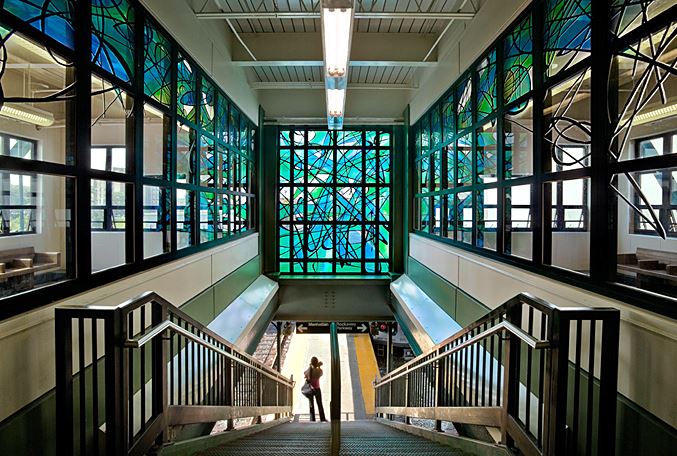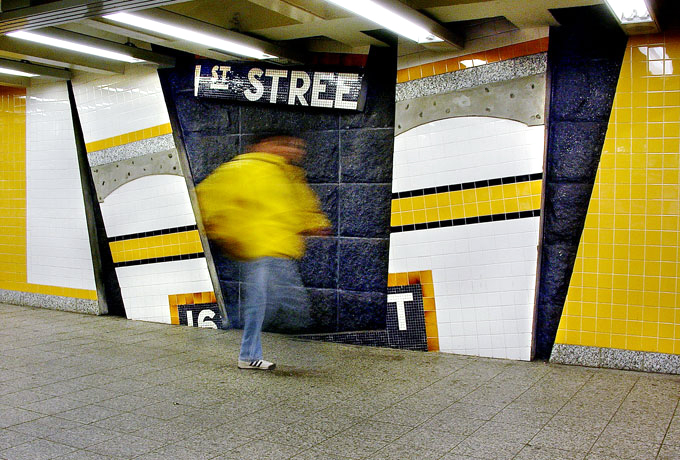Art World
The MTA Has Turned the Subway Into an Underground Museum

Photo: courtesy Untapped Cities.

Sarah Cascone

There are many things the average New Yorker associates with his or her morning commute: packed cars, train traffic ahead, manspreading . . . but if Sandra Bloodworth, director of the MTA’s arts and design program, has her way, the system’s surprisingly large art collection will capture the attention of more and more subway riders.
As detailed in Bloodworth’s 2014 book New York’s Underground Art Museum, coauthored with independent curator William Ayres, the MTA’s systems are home to no fewer than 250 artworks, with another 50 already in the works. The public art program was initiated in 1985, and has transformed subways, buses, Metro-North, the Long Island Rail Road, and even the Brooklyn Battery Tunnel into unexpected art venues.
Taking the Wall Street Journal on a subway art tour, Bloodworth showed off Elizabeth Murray’s four-wall mosaic Blooming at the Lexington Avenue-59th Street station, and V-Beam, an easily overlooked Christopher Sproat functional sculpture piece installed above the 7 train platform at Grand Central-42nd Street, among other works.

Vito Acconci, Wall-Slide (2002).
Photo: courtesy MTA Arts & Design.
The work of several blue chip artists grace the New York city underground, including Roy Lichtenstein, whose blue-and-yellow mural at the Times Square station was described by Bloodworth as “the signature of the system,” and Sol LeWitt, who, when he died in 2007, was at work on the 53-foot-long Whirls and twirls (MTA), completed at the 59th Street–Columbus Circle station in 2009.
Farther afield, the system holds such wonders as Robert Wilson‘s painted-glass sky way at Coney Island, and the string of art installed on the windows of above-ground stations between Fort Hamilton and Bay 50th Street. Indeed, the entire D-train line is particularly rich with art, from the tip of Brooklyn through Midtown and into the Bronx. Up at Yankee Stadium, Vito Acconci offers an off-kilter version of the typical tiling in a way that suggests that the walls have shifted after an earthquake.
One of the newest addition to the MTA’s collection is James Carpenter Design Associates, Grimshaw Architects, and Arup’s captivating Sky Reflector-Net (2013) at the new Fulton Center hub, a steel and aluminum sculpture suspended from the station atrium, ain natural light. “I don’t think this is like any station you’ll have seen in New York,” said Bloodworth proudly.
When (or should we say if?) the Second Avenue subway is completed, it will be home to a massive mosaic from Sarah Sze, lining the escalator walls at 96th Street. A series of Chuck Close’s pixilated portraits, also executed in mosaic, will grace the 86th Street station, depicting famous New Yorkers, proving that there’s more than just improved transportation to look forward to with the long-delayed project.